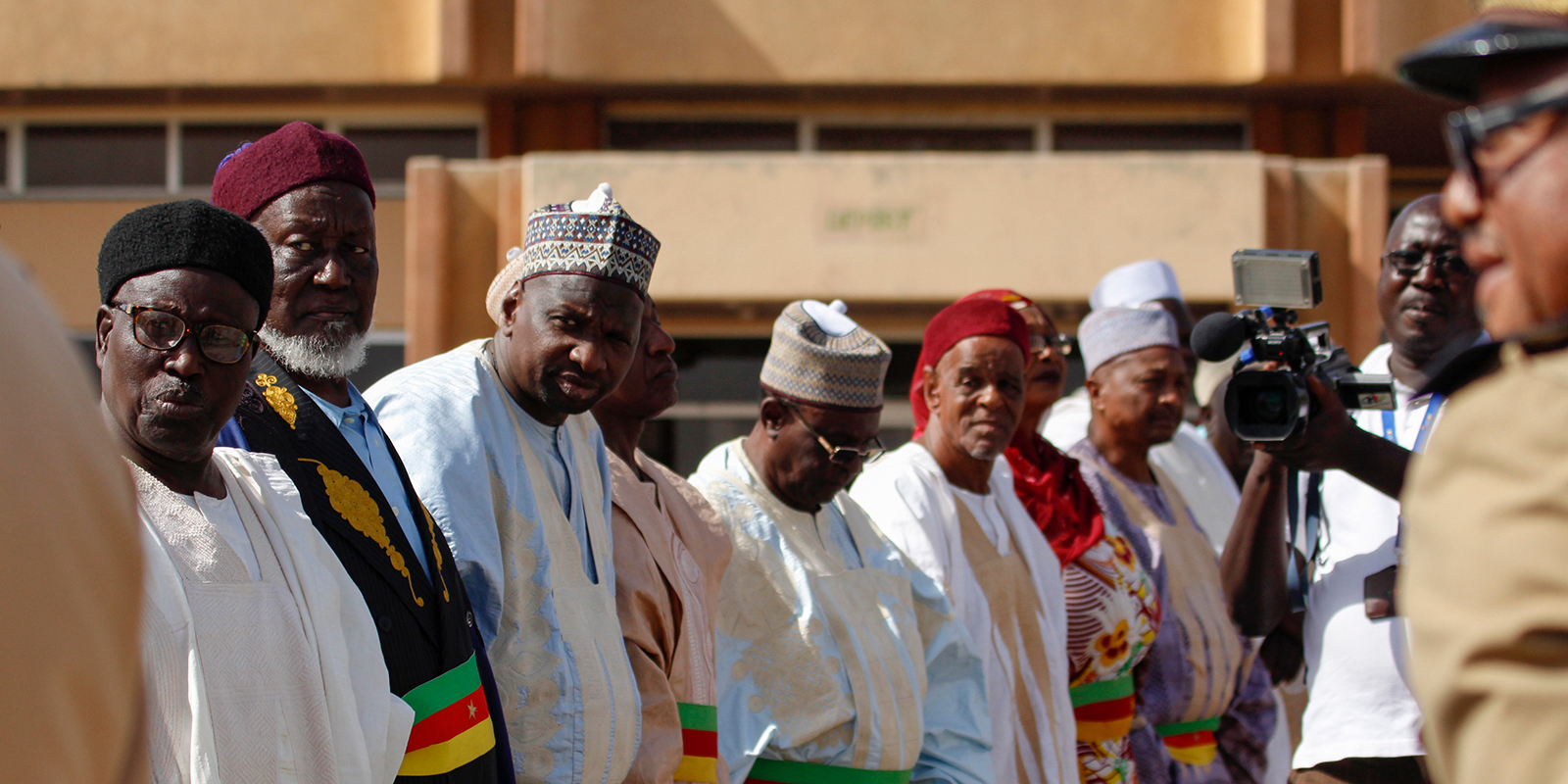Ahead of the 3rd Lake Chad Basin Governors’ Forum, challenges persist, yet opportunities for regional cooperation have never been stronger. For populations living in the Lake Chad Basin region, the global COVID-19 pandemic has only intensified the existing humanitarian and economic crisis, resulting in dire consequences for the most vulnerable and marginalized communities.
Local ownership is key to long-term recovery and resilience in the Lake Chad Basin. The 3rd Lake Chad Basin Governors’ Forum will take place on 4-5 October 2021 in Yaoundé, Cameroon.
Tweet
In the four affected countries of Niger, Nigeria, Chad and Cameroon, widespread insecurity and limited access to health, education and other essential services amid the pandemic threaten to roll back sustainable development gains.
The Boko Haram insurgency, which took on a regional dimension in 2015, is responsible for more than 27,000 fatalities and the displacement of 3.2 million people to date, including 304,000 refugees across the four Lake Chad Basin countries. The impact of lives lost, and futures destroyed is immeasurable.
The 2020 Human Development Index (HDI), a measure of average achievement in the key dimensions of human development, ranked Cameroon at 153, Nigeria at 161 and Chad at 187. No data is available for Niger; however, in 2019, the country ranked 189 out of 189, making it the least developed country in the world.
In response to these complex challenges, the governors of the eight worst-affected territories – Borno, Adamawa, Yobe States in Nigeria, Diffa region in Niger, Region du Lac and Hadjer-Lamis in Chad and the North and Far North Regions in Cameroon – in the Lake Chad Basin, together with regional and international stakeholders and partners, convened the first Lake Chad Basin Governors’ Forum in 2018. Established in recognition of the need for increased local ownership, the Forum is a platform for national, regional, and international stakeholders to review and assess the region’s political, civil, security and humanitarian situation and serve as champions for increased cross-border dialogue and cooperation.
As the largest security threat in the region, ending the Boko Haram crisis calls for a combination of military and stabilization measures to restore state authority, create trust for enhanced cooperation and build meaningful engagement with all affected parties, including addressing the political, social, and economic grievances of marginalized communities.
Central to these efforts is the Regional Stabilization, Recovery and Resilience Strategy (RSS), launched in 2018 to provide national and local interventions based on specific country contexts. The endorsement of the RSS at the inaugural Governors’ Forum acknowledged the critical role of civil society, including women and youth; cross-border trade; reintegration and rehabilitation; and the role of regional mechanisms in addressing the root causes of the crisis.
To this end, reintegration and rehabilitation efforts have been community-driven, context-specific and responsive to the needs of different stakeholder groups. In Cameroon, for example, the Far North Regional Centre for Disarmament, Demobilization and Reintegration (NCDDR) in Mora, has received more than 1,000 repentant Boko Haram combatants through a close partnership between administrative and military authorities. However, the centre faces resource challenges such as a lack of adequate infrastructure to accommodate the constant flow of returning ex-militia.
The second edition of the Governors’ Forum, held in 2019, announced the establishment of a US$100 million Regional Stabilization Facility (RSF) to guide the implementation of the RSS. In a post-Forum communique, the governors articulated their “committed to joint efforts towards stabilizing, building peace and fostering sustainable development across the Lake Chad Basin through promoting dialogue and cross-border cooperation”.
Over the past two years, the RSF has supported governments and affected local authorities to strengthen social contracts and re-establish trust, law and order. The construction of over 1,800 infrastructures (water lines, shops, market stalls, housing, health facilities, schools) in the border region of Nigeria-Cameroon improved community safety and created new market opportunities for communities to benefit from cross-border economic trade. The Facility also provided livelihood opportunities and vocational training for more than 26,000 individuals across the four countries through a cash-for-work programme.
To chart a path out of the complex challenges facing the region, partners and stakeholders alike must continue to commit to recovery and resilience efforts including but not limited to, emphasizing national and local ownership of stabilization measures, fostering political participation and economic empowerment, particularly by women and youth, and supporting efforts to restore the social contract between state and citizens. Regional institutions such as the African Union (AU), the Economic Community of West African States (ECOWAS), and the Economic Community of Central African States (ECCAS) have a role to play in holding national actors accountable to these commitments.
In shaping the narrative on the Lake Chad Basin, stakeholders at the local, national and regional levels can engage the public in three main areas. First, establish a shared understanding of the region’s priorities, challenges and opportunities. Second, ensure an inclusive and participatory whole-of-society approach to transboundary cooperation and stabilization. Third, recognize and commit to local ownership as essential for long-term recovery and resilience in the region.
The third edition of the Governors Forum will convene the eight governors of the affected regions, the Lake Chad Basin Commission, the Multinational Joint Task Force (MNJT), the African Union, international partners and individual stakeholders to review and analyze the region’s security and humanitarian development and progress made in the implementation of stabilization measures.
Chika Charles Aniekwe is the Senior Advisor and Head of Stabilization for the UNDP/LCBC Lake Chad Basin Regional Stabilization Strategy. Michelle Mendi Muita is the Communications Specialist for the UNDP Regional Programme. The 3rd Lake Chad Basin Governors’ Forum will take place on 4-5 October 2021 in Yaoundé, Cameroon.



